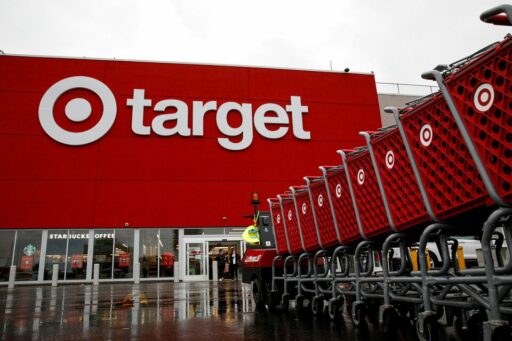Target Corporation, one of the largest and most prominent retail chains in the United States, has long been recognized for its commitment to sustainability and corporate social responsibility. Over the years, the company has integrated sustainability into its operations, supply chain, and product offerings, making it a leader in the retail sector for sustainable practices. With its 2024 Sustainability and Governance Report, Target continues to push the envelope on what it means to operate as a sustainable business, focusing on reducing its environmental impact, promoting social equity, and ensuring the long-term well-being of communities.
At the heart of Target’s sustainability strategy is “Target Forward,” an initiative that encompasses a wide range of goals aimed at creating a regenerative future for both the company and its stakeholders. This strategy includes ambitious targets for carbon emissions reductions, circular product design, waste diversion, community support, and ethical business practices. Through its efforts, Target seeks to make a positive impact not only on the environment but also on the social and economic aspects of the communities it serves.
Sustainability Strategy and Goals
Target’s sustainability strategy focuses on creating a holistic approach to environmental, social, and governance (ESG) practices. Through a combination of targeted goals and impactful initiatives, the company seeks to contribute meaningfully to global sustainability while also driving business growth.
Net Zero and Carbon Emissions
Target has set an ambitious target to achieve net-zero greenhouse gas emissions by 2040. This goal covers Scope 1, 2, and 3 emissions, and Target has outlined a series of steps to achieve this target, which include transitioning to renewable energy, enhancing energy efficiency, and driving carbon-neutral product design.
- Renewable Energy: Target is committed to sourcing 100% of its electricity from renewable sources by 2030.
- Emission Reduction: In 2023, the company reduced its Scope 1 and 2 emissions intensity by 24% compared to its 2017 baseline. Target is on track to meet its interim 2025 goals.
- Sustainable Products: Target’s owned brands, including Everspring and Universal Thread, are focused on creating circular product lines with materials that are renewable, reusable, or recyclable.
Target’s carbon emissions goals are aligned with the broader global efforts to meet the Paris Agreement, underscoring the company’s commitment to addressing climate change head-on.
Circular Economy and Waste Reduction
One of Target’s most significant sustainability goals is to establish a circular economy for its products. By 2040, the company aims to design all of its owned-brand products for a circular future, meaning that products will be designed for reuse, recycling, or composting at the end of their lifecycle.
- Zero-Waste Stores: Target has committed to reducing waste sent to landfills from its stores and distribution centers, with a goal of achieving zero waste by 2030.
- Product Recycling: Target is focusing on designing its products with sustainable materials that can be easily recycled or repurposed, moving away from single-use plastics and other environmentally harmful materials.
- Packaging: The company is working to make all packaging 100% recyclable, reusable, or compostable by 2025.
Diversity, Equity, and Inclusion (DEI)
Target recognizes the importance of diversity, equity, and inclusion both within its workforce and in its relationships with suppliers and customers. The company is taking concrete steps to address racial and gender inequality, promote equal opportunities, and ensure that all individuals feel valued within its community.
- Workforce Diversity: Target has committed to increasing the representation of women and people of color in its leadership teams, and it continues to create an inclusive workplace where diversity is celebrated.
- Supplier Diversity: Target has significantly increased its spend with diverse suppliers, setting a goal to reach $2 billion in procurement from diverse suppliers by 2025.
- Community Support: Through its “Target Community Impact” program, the company focuses on improving education, health, and economic opportunities in underserved communities.
Community Engagement
Target is committed to enhancing the communities where it operates through philanthropic efforts, employee volunteerism, and strategic investments aimed at addressing key societal issues. The company has a long history of supporting local organizations and initiatives that align with its values.
- Philanthropy: Target donates a percentage of its profits to local nonprofits, supporting causes like education, food security, and sustainability.
- Volunteerism: Target encourages its employees to participate in volunteer opportunities, providing paid time off for volunteering and matching employee donations to charity.
Ethical Business Practices
Target operates with a strong focus on transparency and ethical business practices. This includes ensuring responsible sourcing across its supply chain, maintaining high standards of corporate governance, and fostering trust among its stakeholders.
- Supply Chain Responsibility: Target has made significant investments in ensuring its supply chain is free from human rights abuses, including modern slavery and child labor.
- Transparency: The company regularly reports on its sustainability goals and progress, maintaining a high level of transparency with its stakeholders.
Key Sustainability Innovations and Technologies
Target has invested in several innovative technologies and initiatives designed to help the company achieve its sustainability goals while also enhancing the customer experience. These innovations span across areas like energy efficiency, product design, and transportation.
Net-Zero Energy Store
Target’s commitment to sustainability is exemplified by its efforts in building and retrofitting stores to meet net-zero energy standards. In 2022, Target opened its first net-zero energy store in Vista, California. This store generates more renewable energy than it consumes annually, making it a model for future store designs. Insights from this store are being used to retrofit other locations and design new stores with similar energy efficiencies.
Sustainable Product Design
Target’s commitment to circular design is evident in its sustainable product initiatives. The company is focusing on redesigning its owned-brand products to incorporate sustainable materials and ensure they are recyclable or compostable. In particular, brands like Universal Thread, which produces clothing made from sustainable materials, are integral to this transformation.
Electric Vehicle Charging Stations
As part of its environmental commitment, Target has installed electric vehicle (EV) charging stations at select store locations. This initiative supports the growing demand for electric vehicles and encourages customers to reduce their carbon footprint while shopping at Target. This complements Target’s broader efforts to support sustainable transportation solutions.
Measurable Impacts
Target’s sustainability strategy is already yielding measurable impacts, showcasing the company’s dedication to achieving its ambitious goals.
- Greenhouse Gas Emissions: Target reduced its Scope 1 and 2 emissions by 24% from 2017 to 2023, putting it on track to meet its net-zero emissions goal by 2040.
- Waste Diversion: Target has achieved a diversion rate of 80% for waste from its stores and distribution centers, with plans to reach zero waste by 2030.
- Sustainable Products: As of 2023, 25% of Target’s owned-brand products were made with sustainable materials, and the company is on track to increase this percentage in the coming years.
- Philanthropy: In 2023, Target donated over $150 million to nonprofit organizations, focusing on community development, food access, and educational initiatives.
Challenges and Areas for Improvement
While Target has made significant strides in its sustainability efforts, the company faces a few challenges that it must address to achieve its long-term goals.
Scope 3 Emissions
Managing Scope 3 emissions, which come from activities outside of Target’s direct control, such as emissions from its supply chain and transportation, remains a significant challenge. Target is working closely with suppliers to reduce these emissions through better sourcing and more efficient logistics.
Plastic Waste
Although Target is making progress with its circular economy initiatives, plastic waste remains an ongoing issue, particularly in packaging materials. Reducing single-use plastics and improving recycling rates are areas where Target will need to continue to innovate and collaborate with partners across its value chain.
Supply Chain Transparency
Ensuring ethical practices and transparency across its entire supply chain is a continuous challenge. Target is committed to monitoring and improving the conditions of its supply chain, especially in regions where labor rights and environmental protections may be weaker.
Comparisons to Industry Competitors
Target’s sustainability efforts position it as a leader in the retail sector, on par with key competitors like Walmart and Amazon. Both Walmart and Target share similar goals, such as achieving net-zero emissions and reducing waste, but Target is seen as a leader in circular product design and net-zero energy store innovation.
- Walmart: Walmart has set its own target for net-zero emissions by 2040 and has invested heavily in renewable energy and sustainable products. However, Target’s focus on net-zero energy stores and circular product design sets it apart.
- Amazon: Amazon’s commitment to net-zero carbon by 2040 and its investment in renewable energy are similar to Target’s initiatives. However, Target’s more robust community engagement and focus on diversity, equity, and inclusion differentiate it from Amazon’s sustainability efforts.
Future Plans and Long-Term Goals
Looking to the future, Target has laid out an ambitious series of goals designed to cement its position as a leader in sustainability and social responsibility.
Expansion of Net-Zero Stores
Target plans to expand its net-zero energy store model, retrofitting more locations and building new stores with the same sustainability standards. These stores will serve as both operational models and testing grounds for innovative energy solutions.
Circular Product Portfolio
Target is accelerating the transition to a circular product portfolio. The company’s goal is to redesign all of its owned-brand products to be fully circular by 2040, with an emphasis on sustainable materials and recyclability.
Enhanced Community Engagement
Target plans to deepen its community engagement by expanding philanthropic efforts and volunteer programs. The company aims to further strengthen its partnerships with local organizations and enhance its social impact in the communities it serves.
Supply Chain Innovation
Target is investing in cutting-edge technologies to improve its supply chain efficiency. The company is focusing on sustainable transportation solutions, such as electric vehicles, and optimizing packaging to reduce environmental impact.
Target’s comprehensive approach to sustainability, with a focus on reducing emissions, promoting circular economy practices, and supporting communities, positions it as a trailblazer in the retail sector. The company’s long-term goals are ambitious, and its ongoing efforts to innovate in areas like product design, waste reduction, and energy efficiency are setting a strong example for other retailers to follow. Despite the challenges, particularly around Scope 3 emissions and plastic waste, Target’s transparent and proactive approach is a testament to its commitment to sustainability. As the company continues to evolve, it will likely lead the way in driving meaningful change across the industry.
Sources: Target Corporation 2024 Sustainability and Governance Report, Target Corporation Sustainability Goals






